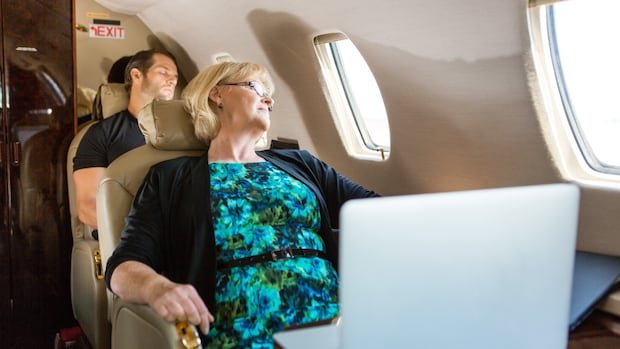WestJet Introduces New Seating Options with Extra Charges
On upcoming WestJet flights, passengers seeking the comfort of reclining seats may face additional charges. The airline is revamping its Boeing 737-8 MAX and 737-800 aircraft to provide a variety of seating choices.
The standard economy seats will now have a fixed recline feature, meaning passengers won’t be able to adjust their seat angle unless they opt for an upgraded seat. WestJet claims this new design optimizes space and caters to diverse passenger preferences while maintaining affordability for those seeking basic services.
However, some critics view this move as a money-making scheme. John Gradek, an aviation management expert at McGill University, described it as a “cash grab” strategy to introduce a higher-priced service tier.
Under the new layout, WestJet will offer a premium section at the front with 12 seats featuring ergonomic designs and reclining capabilities. Following this, an extended comfort section will provide 36 reclining seats with increased legroom compared to standard economy seats.
The remaining economy section will have no extra legroom or reclining seats, separated by a partition. A WestJet spokesperson emphasized the airline’s commitment to providing affordable airfares while exploring new products to enhance the passenger experience.
While the non-reclining seat concept is common on international budget airlines, it represents a departure from the Canadian market standard of reclining seats even in economy class. The airline’s decision has sparked mixed reactions among passengers, with some questioning the fairness of charging extra for previously standard features.
Passenger opinions on seat reclining etiquette vary, with WestJet indicating that half of its audience prefers fixed recline seats to prevent encroachment on their space. The airline asserts that the new seating options are a response to customer feedback.
Passenger rights advocate Gábor Lukács supports the idea of paying more for increased comfort but raises concerns about ensuring accommodations for taller or larger passengers without additional charges. He advises passengers to be aware of their rights and contact the airline for special considerations.
The move by WestJet follows a trend in the airline industry of once-complimentary services now incurring extra charges, such as meals and baggage fees. This shift prompts reflection on how far airlines can go in introducing additional fees before facing pushback from passengers.
Overall, the introduction of new seating options with varying charges reflects WestJet’s efforts to balance passenger comfort and affordability in a changing air travel landscape.

